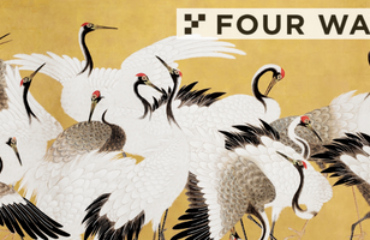TWO POEMS by William Fargason

Elegy with a Treble Hook
Ten years, twenty years later, I am still
that child beneath my father’s belt
raised high in the air above his head.
Still waking up each morning to him
ripping my shirt off my back, grabbing
the weight of me from sleep. How long
will it take for my anger to fade? He wasn’t
always awful. He taught me how
to fish, how to hold with one hand
the cricket still wiggling, how to thread it
onto the hook with the other, how to cast
the line in the water’s mirrored ripple
and wait. He taught me how to wait
in that stillness for a bite, then how to set
the hook. How to reel the fish in, holding
the line tight. How if the fish had swallowed
the hook, if the barb was stuck deep inside
the throat, the fish would die. The fish
wasn’t dead yet, but would be in hours,
maybe days. How it wouldn’t be able
to hold anything but the sharpness
in its chest. How the fish wasn’t the length
of his forearm, how it was too small
to keep, to eat. He taught me how to cut
the line with his pocket knife. How the fish
would die, but he taught me how to still
kneel down and lower the fish gently back
into the water, how to release him.
Elegy for the Memory of Memory
Since all memory decays, my father
is hitting me, was hitting me, had been hitting me,
then denies it as he takes firewood
from the wood pile, tosses it in the mouth
of the stove—since even this is nothing
now but a remembrance of the flames,
I have no way to know if he ever hit me,
if the fire was ever there, his hand fading
while still mid-air—or, if he is right,
the picture frame broke not from him
hitting it against his desk, but from falling
off a bookshelf, the height of which exists
now only in my memory, the bookcase
not holding books, but decorations.


